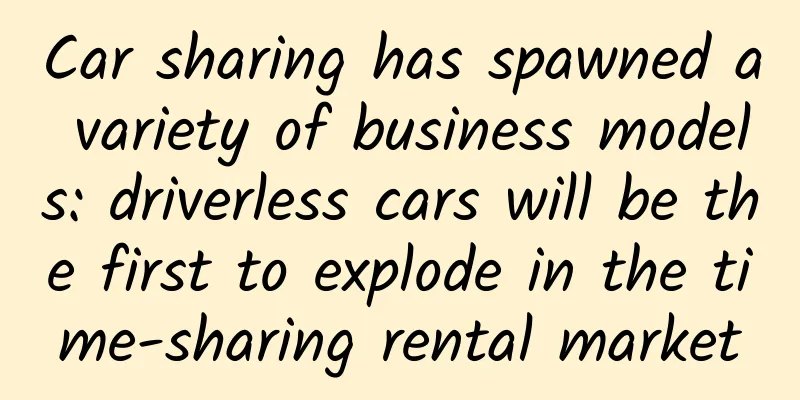You're already perfect! Is this the most "deceptive" advice?

|
Leviathan Press: Whether the "self-enhancement bias" is beneficial to individual fitness has always been controversial. A variety of motivations can influence the emergence of self-enhancement, so it has both advantages and disadvantages. People who make mistakes in their own performance assessments (including both self-enhancers and self-deprecators) tend to get lower academic performance and other performance worse. However, some researchers believe that if "self-improvement" is understood as "evaluating oneself higher than others do", then this does not belong to self-improvement. Self-improvement should be defined as "one's evaluation of oneself is higher than others' evaluation of oneself." Imagine a time when you are feeling down and low on self-esteem. Someone who loves you wants to comfort you by saying something really affirming: “You are perfect just the way you are!” It sounds nice… but in reality, it is perhaps the most deceptive thing we can say to ourselves or others when we are sad or upset. It triggers a huge cognitive dissonance: “Is this what perfection is?” you think (after the brief glow of the compliment wears off). And this suggests one of two logical conclusions: Either you are in a bleak state with no possibility of self-improvement, or the outside world is responsible for your unhappiness. The first conclusion leads to utter despair; the second to angry rebellion against a malevolent universe. The truth is, you are not perfect, and neither is anyone else. And here's the very good news: If you can accept that reality, there is hope that you can improve yourself and your life. And then you'll be happier. We humans have a natural tendency to subtly exaggerate our positive qualities and compare them to others. This is called the self-enhancement bias, and it can lead to a variety of cognitive distortions[1]. As far back as the 1980s, researchers found that as many as 80% of drivers believed they were above average drivers.[2] If you’re an average driver, you know that this can’t be true—even if you’re convinced you’re an exception. © Sophie Blackall People also tend to rate themselves higher on positive moral traits: for example, they might see themselves as hardworking, honest, and enthusiastic. On the other hand, they tend to rate others higher on negative traits, such as laziness, indifference, and hypocrisy.[3] This is particularly true among young and middle-aged people, who rate themselves as above average on many measures. One reason for this tendency is that it serves as a protection against the psychological pain that comes with making negative comparisons with others. In a 2013 article published in the Proceedings of the National Academy of Sciences[4], neuroscientists showed through functional magnetic resonance imaging (fMRI) and PET scans that feelings of superiority stimulate the release of dopamine, which in turn inhibits activity in brain regions associated with psychological pain, such as the dorsal anterior cingulate cortex[5]. As expected, people who don’t engage in self-enhancement appear to suffer more mental distress than those who do. Although the causal relationship is unclear, some researchers have suggested[6] that people who accurately assess themselves are more likely to suffer from mood disorders such as depression, a phenomenon known as “depressive realism.” Being told you’re great, even perfect, plays to your need for self-enhancement. That’s why your well-meaning loved ones do it. You probably say it to yourself, too; many psychological techniques, such as boosting self-esteem through positive self-talk, build on our self-enhancement bias. As Al Franken’s character Stuart Smalley on Saturday Night Live parodied, his mantra was, “I’m good enough, I’m smart enough, and people like me no matter what!” © MedicalNewsToday Although self-improvement may feel good in the short term, it is not a long-term solution to life’s problems. Sooner or later, you will have to face a painful adjustment to the truth. For example, research published in the Journal of Personality and Social Psychology[7] found that when college students overestimated their academic abilities, their positive emotions increased—that is, they felt happier. But the illusion of superiority did not translate into better academic performance. In fact, these students often failed to meet their academic expectations, which in turn led to a decline in self-esteem in the long run. All of this suggests that while in the short term we are constantly praising others (especially children) to boost their self-esteem, in the long term we are likely to see a sharp rise in emotional disturbances in young people. This may also explain why so many young people today end up viewing the world as hostile: “If I’m great, then other people must be giving me problems.” You can see how some people view their situation as miserable and unfair when their performance in school or work doesn’t match their self-enhancement bias. So we face a dilemma in life: We want to feel better about ourselves and we want to make others feel better, but the tendency to achieve this through self-improvement is only a temporary stopgap that may have lasting ultimate costs. Here are four things we can tell ourselves and others. 1. You are not perfect, but you are normal Rather than trying to eliminate negative emotions, it’s helpful to emphasize that both ourselves and others are imperfect and that this is normal. Suffering, whether physical or psychological, is a sign that something is wrong. We often view it as evidence that there is something wrong or abnormal about us. This is reinforced by our culture, which tends to diagnose psychological discomfort as a condition that needs to be treated rather than as a regular part of life. Of course, psychological pain in the form of depression or anxiety can be a condition that requires treatment. But general psychological and emotional pain itself is a perfectly normal part of life. If you never feel sad or have low self-esteem, that’s a pretty good indicator that there’s something wrong with you. © Jan Buchczik 2. Accept yourself Accepting your own imperfections is healthier mentally than trying to convince yourself that you’re not perfect. In fact, treating yourself with this kind of compassion, rather than condemning or deceiving yourself, can make you more compassionate toward others. Researchers in 2020 found[8] that when people accepted their own imperfections, they became more tolerant of the imperfections they perceived in their romantic partners and acquaintances. Accepting your own imperfections means acknowledging, without judgment, that it’s human to make mistakes and observing the pain. 3. Strive to improve Acknowledging “I’m deficient in this area now” does not mean “I’ll always have this deficiency.” On the contrary, self-acceptance can and should foster progress. If you’ve learned a second language as an adult, you know how important it is to accept your early incompetence with a good sense of humor, so that you’re motivated to improve and practice the new language, and so that you’re not embarrassed when you make mistakes. But you should also resist self-improvement: if you pretend that you’re already fluent, you won’t make progress. This applies to any deficiency. 4. Don’t blame others As mentioned earlier, the biggest problem with self-improvement is chronically facing the painful reality of your own imperfections. That’s when we notice cognitive dissonance, where two beliefs (I am great/I am not great) are in an incompatible tension. This tension can motivate an external explanation: for example, I am naturally great, but my efforts are being thwarted by someone or something external. This may be true, but it’s often just another form of self-deception that leads to a lot of pain. Researchers have shown that people with poor emotional self-regulation tend to blame others for their poor choices.[9] This illusion can help to eliminate negative emotions in the short term, but researchers suggest that taking responsibility for one’s own decisions is a better long-term strategy for managing negative emotions. One final tip: re-examine your own and others’ flaws, not as failures, but as interesting puzzles to solve. If you enjoy puzzles, you may have noticed that you initially enjoy the puzzles that are easy to solve, but quickly get bored and start looking for harder puzzles. If they are too hard, you get frustrated. The same principle applies when you play a sport or learn a musical instrument. At every skill level, there is a sweet spot between being too easy and too hard. As your skills increase, you can handle more challenges, and your enjoyment range increases accordingly. Life's challenges are like puzzles. I suspect that when we use self-improvement to avoid the discomfort of striving, we inadvertently get stuck in the enjoyment zone of the self-improvement game, which may be a big reason researchers are seeing increased unhappiness today. You don't need to make any improvements because you're already perfect? How boring would that be! By Arthur C. Brooks Translation/Yuba and Thin Bamboo Proofreading/tamiya2 This article is based on the Creative Commons License (BY-NC) and is published by Yuzhu and Shouzhu on Leviathan The article only reflects the author's views and does not necessarily represent the position of Leviathan |
>>: There is a kind of romance in the universe, I am your companion star
Recommend
Cloud computing war: Former Amazon employee sued for joining Google
According to foreign media reports, Amazon is sui...
Why do yellow clothes attract more flying insects?
Expert of this article: Yang Chao, PhD in Chemist...
Blind box event marketing is a blast!
Blind boxes have now become a new type of marketi...
A heart-breaking question for holiday travel: Why is the signal on the high-speed rail so poor?
High-speed rail is an important symbol of the mod...
Growth strategy for advertising monetization: splash screen ads
When I was searching for relevant information on ...
Online earning sideline project, you will get income if you browse, you can do it all over the world
Online earning sideline project, there is income ...
Brand Marketing Promotion | Where will the “viral” spread of vulgar marketing lead to?
Introduction: I don’t know when it started, but t...
If you want to play, play the most advanced one! The ultimate cost-effective tool is here!
Since the CES (Consumer Electronics Show) at the ...
A complete Xiaohongshu traffic promotion plan!
Since May 2019, it has been a very difficult year...
Microsoft is working on Android Launcher
[[142899]] Microsoft is currently developing a la...
What new discoveries have been made in the scientific expedition to the Amnye Machen Glacier in Qinghai?
Recently, a research team from the Yangtze River ...
Can eating chili peppers speed up the recovery of oral ulcers?
Recently, some netizens claimed that if you want ...
How to master offline marketing?
When we do offline marketing , the actual flash s...
Apple quietly pushes the first beta version of iOS 14.7: iOS 14.6 will soon be released
This Tuesday, the iOS 14.6 RC candidate version, ...









